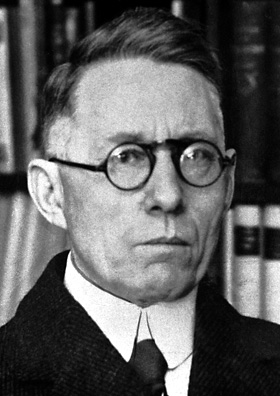
Johannes Vilhelm Jensen was a Danish author, known as one of the great Danish writers of the first half of 20th century. He was awarded the 1944 Nobel Prize in Literature "for the rare strength and fertility of his poetic imagination with which is combined an intellectual curiosity of wide scope and a bold, freshly creative style". One of his sisters, Thit Jensen, was also a well-known writer and a very vocal, and occasionally controversial, early feminist.
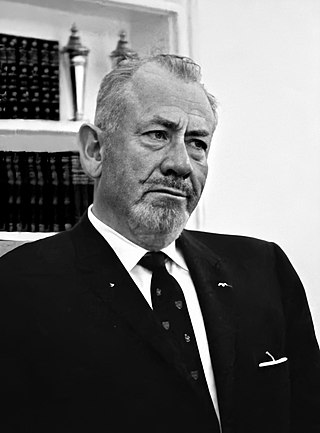
The 1962 Nobel Prize in Literature was awarded to the American author John Steinbeck (1902–1968) "for his realistic and imaginative writings, combining as they do sympathetic humour and keen social perception."
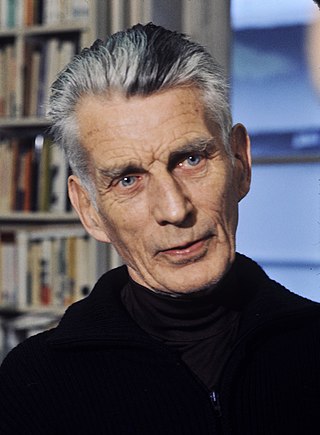
The 1969 Nobel Prize in Literature was awarded to the Irish author Samuel Beckett (1906–1989) "for his writing, which - in new forms for the novel and drama - in the destitution of modern man acquires its elevation."

The 1948 Nobel Prize in Literature was awarded to British-American poet Thomas Stearns Eliot (1888–1965) "for his outstanding, pioneer contribution to present-day poetry." Eliot is the fourth British recipient of the prize after John Galsworthy in 1932.
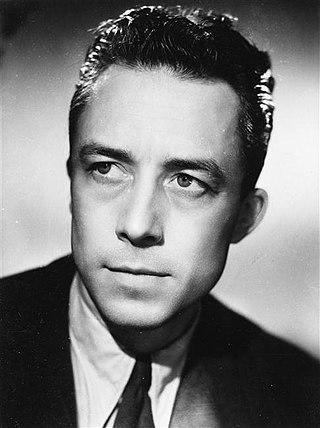
The 1957 Nobel Prize in Literature was awarded the French writer Albert Camus (1913–1960) "for his important literary production, which with clear-sighted earnestness illuminates the problems of the human conscience in our times." He is the ninth French author to become a recipient of the prize after Catholic novelist François Mauriac in 1952, and the fourth philosopher after British analytic philosopher Bertrand Russell in 1950.
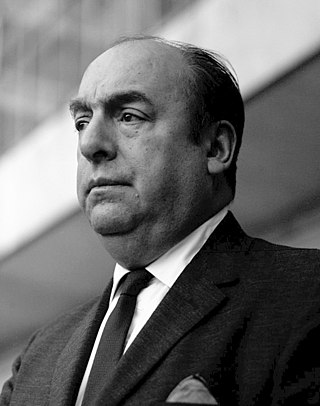
The 1971 Nobel Prize in Literature was awarded to the Chilean politician and poet Pablo Neruda (1904–1973) "for a poetry that with the action of an elemental force brings alive a continent's destiny and dreams." Neruda became the second Chilean Nobel laureate in Literature after Gabriela Mistral in 1945.

The 1938 Nobel Prize in Literature was awarded to the American author Pearl S. Buck (1892–1973) "for her rich and truly epic descriptions of peasant life in China and for her biographical masterpieces." Buck was the first female American to be awarded the Nobel Prize and the third American recipient following Eugene O'Neill in 1936 and Sinclair Lewis in 1930. She was also the fourth woman to receive the prize.

The 1931 Nobel Prize in Literature was posthumously awarded to the Swedish poet Erik Axel Karlfeldt (1864–1931) with the citation: "The poetry of Erik Axel Karlfeldt." He was the third Swede to win the prize and remains the only recipient to be posthumously awarded. Karlfeldt had been offered the award already in 1919 but refused to accept it, because of his position as permanent secretary to the Swedish Academy (1913–1931), which awards the prize.

The 1950 Nobel Prize in Literature was awarded the British philosopher Bertrand Russell (1872–1970) "in recognition of his varied and significant writings in which he champions humanitarian ideals and freedom of thought." He is the fourth philosopher to become a recipient of the prize after the French analytic-continental philosopher Henri Bergson in 1927, and was followed by the French-Algerian existentialist Albert Camus in 1957. He is also the fifth British author to be awarded.

The 1940 Nobel Prize in Literature was not awarded when the Nobel committee's deliberations were upset by the start of World War II on September 1, 1939. Instead, the prize money was allocated with 1/3 to the Main Fund and with 2/3 to the Special Fund of this prize section. This was the fourth occasion in Nobel history that the prize was not conferred.

The 1941 Nobel Prize in Literature was not awarded due to the ongoing World War II that started in September 1, 1939. Instead, the prize money was allocated with 1/3 to the Main Fund and with 2/3 to the Special Fund of this prize section. This was the fifth occasion in Nobel history that the prize was not conferred.

The 1942 Nobel Prize in Literature was not awarded due to the ongoing World War II. Instead, the prize money was allocated with 1/3 to the Main Fund and with 2/3 to the Special Fund of this prize section. This was the sixth occasion in Nobel history that the prize was not conferred.

The 1943 Nobel Prize in Literature was not awarded due to the ongoing World War II. Instead, the prize money was allocated with 1/3 to the Main Fund and with 2/3 to the Special Fund of this prize section. This was the seventh occasion in Nobel history that the prize was not conferred.

The 1939 Nobel Prize in Literature was awarded to the Finnish writer Frans Eemil Sillanpää (1888–1964) "for his deep understanding of his country’s peasantry and the exquisite art with which he has portrayed their way of life and their relationship with Nature." He is the first and the only Finnish recipient of the prize.

The 1968 Nobel Prize in Literature was awarded to the Japanese writer Yasunari Kawabata (1899–1972) "for his narrative mastery, which with great sensibility expresses the essence of the Japanese mind." He is the first Japanese recipient of the prize.

The 1967 Nobel Prize in Literature was awarded to the Guatemalan writer Miguel Ángel Asturias (1899–1974) "for his vivid literary achievement, deep-rooted in the national traits and traditions of Indian peoples of Latin America." He is the first Guatemalan and the second Latin American author to receive the prize after the Chilean poet Gabriela Mistral won in 1945.

The 1929 Nobel Prize in Literature was awarded to the German author Thomas Mann (1875–1955) "principally for his great novel, Buddenbrooks, which has won steadily increased recognition as one of the classic works of contemporary literature." He is the fourth German author to be awarded the literature prize after Paul von Heyse in 1910.

The 1936 Nobel Prize in Literature was awarded to the American playwright Eugene O'Neill "for the power, honesty and deep-felt emotions of his dramatic works, which embody an original concept of tragedy". The prize was awarded in 1937. He is the second American to become a literature laureate after Sinclair Lewis in 1930.

The 1927 Nobel Prize in Literature was awarded to the French philosopher Henri Bergson (1859–1941) "in recognition of his rich and vitalizing ideas and the brilliant skill with which they have been presented." He was the second philosopher to gain the Nobel Prize after Rudolf Christoph Eucken won in 1908.
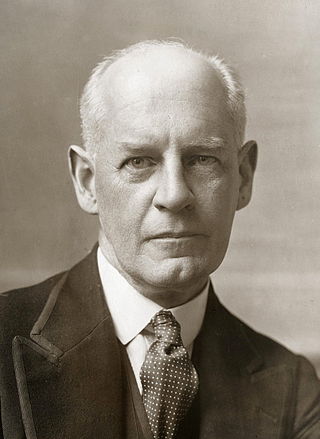
The 1932 Nobel Prize in Literature was awarded to the British author John Galsworthy "for his distinguished art of narration which takes its highest form in The Forsyte Saga".

















